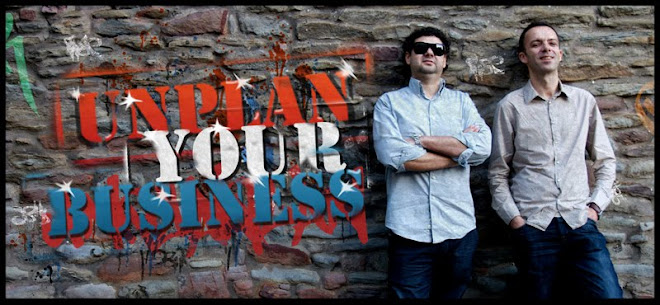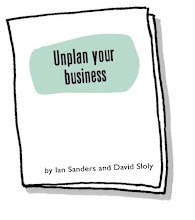I must confess I wasn’t familiar with Michael Schrage until Tom Peters told me about him. So I looked him up. A co-director of the MIT Media Lab's eMarkets Initiative, Michael Schrage writes, consults and collaborates in the design and development of digital innovation. He’s a research fellow with the Sloan School of Management's Center for Digital Business and a visiting fellow at Imperial College's 'Innovation and Entrepreneurship' programme. He's done consulting and advisory work for Microsoft, Procter&Gamble, British Telecom, BP, Siemens, Embraer, Google, iRise, Mars, the Office of Net Assessment and other organizations. Editorially, Schrage has been a contributor to the Harvard Business Review, The Wall Street Journal, Fast Company, Wired, Red Herring, Forbes, Esquire, The Los Angeles Times and The Washington Post.
When Tom Peters called Michael the ‘guru’ of prototyping, it was clear I needed to track him down. And this is what he has to contribute to the #Unplan debate:
“ To repurpose a ‘60s cliché, entrepreneurs need traditional business planning as much as fish need bicycles.... Even with generously flexible definitions of 'traditional,' I’d argue that investments in 'planning' are less valuable and/or useful and/or useable than investments in adaptiveness, responsiveness and agility....
When entrepreneurs come to me for 'free' advice, I generally ask them to discuss with me their three or five most cherished, most important and most essential 'assumptions' they have around their proposed business - this makes clear to me what level of rigor and comprehensiveness they've brought to their thinking. Then I ask them what prototypes, models and experiments they've explored to test and challenge those assumptions...because actions always speak louder than words...deeds are always more persuasive than thoughts.
To me, 'planning' is not about how we project into the future, it's how we stress test and retest the assumptions we build upon to innovate and advance”.
picture credit: HSM Global






No comments:
Post a Comment